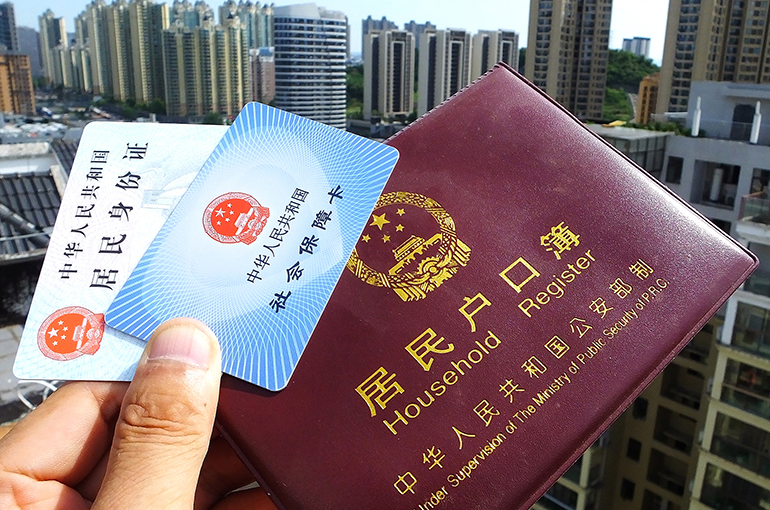 China’s Zhejiang to Lift Curbs on Household Registration, Except in Provincial Capital
China’s Zhejiang to Lift Curbs on Household Registration, Except in Provincial Capital(Yicai Global) July 18 -- China’s economically-developed province of Zhejiang plans this week to remove restrictions on household registration within its borders, except in the provincial capital of Hangzhou, enabling people to become official residents and signifying the progress made in reforming its social welfare and public service systems.
Apart from the urban areas of Hangzhou, a megacity of 10 million people, the province will fully lift restrictions on attaining local household registration, or hukou, according to a policy document recently published on the Zhejiang government’s website. The five-year policy will be effective from July 22.
On a trial basis people will be allowed to apply for household registration based on their habitual residence only, thereby supporting non-locals and rural migrants to settle and enjoy all the social benefits the municipal government provides to city dwellers, it added.
Hangzhou's urban areas will also gradually revoke the annual quota for local household registrations by perfecting its points-based registration system, the document showed.
Zhejiang's private economy is well-developed and its economic activity brings many jobs, attracting huge labor inflows, said Su Jian, an economics professor and director of the China Center for Economic Research at Peking University. Its improved social security and public service systems provide more reasons for outsiders to stay, Su added.
The ranks of Zhejiang’s permanent rose by 370,000 last year, with only 3,000 due to natural growth, according to figures the province released in February. The increase mainly came from inflows from other provincial-level regions in China.
Before China’s economic reforms began more than 40 years ago, a strict household registration system was in force, making population migration quite difficult. Since then migration has been allowed and sometimes even encouraged, but most migrants could not become official residents of their new hometowns because it is very difficult, if not impossible, to get hukou in the new city.
The restriction had a clearer adverse impact on residents with rural household registrations, who usually received lesser social welfare benefits compared with city residents.
Urban Draw
In addition to encouraging inflows of non-local talent, abolishing restrictions on household registrations in Zhejiang also aims to encourage those with rural household registration to relocate to urban areas. That would boost the urbanization rate and enable new migrants to enjoy locally provided social welfare, said Yang Chuankai, deputy researcher at the Institute of Urban and Demographic Studies of the Shanghai Academy of Social Sciences.
According to the policy document, the urbanization rate of Zhejiang's permanent residents should rise to 76 percent by 2027 from 73 percent in 2022. The growth in per-capita income of those relocating to urban from rural areas should be synchronized with the increase in urban residents' per-capita disposable income. The document also proposed plans for building affordable rental housing to achieve the targets.
The policy will not have a major impact on house prices in cities with new migrant inflows, Yang said. This is because small and mid-sized cities have relaxed their rules on people with outside household registrations buying local homes, and the number of new migrants that can be attracted by these cities is relatively small, Yang added. Megacities are not included in the policy's scope, he pointed out.
Many Chinese regions are constantly lowering the bar to local household registration, so that they can compete for younger people becoming residents, Yang pointed out.
Before Zhejiang, Shandong in the east of China and Jiangxi in the southeast brought out policy documents allowing non-local residents to freely obtain hukou in their provincial cities.
A policy document released last July by China’s state planner, the National Development and Reform Commission, also showed that the country plans to fully cancel restrictions on household registration in cities where the number of permanent urban residents is less than 3 million.
Editors: Tang Shihua, Martin Kadiev